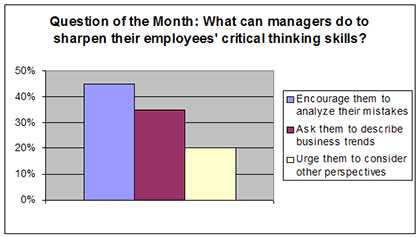By AMA Staff
The New York Times recently published an article examining Toyota Motor Corp’s rise from a small, obscure Japanese company to a global powerhouse poised to become the largest car manufacturer in the world. Unsurprisingly, the article concludes that it’s not only Toyota’s superior products that have led it to the top, it’s also the company’s superior management practices, which have long been the stuff of legend. One of the most religiously followed of these practices is something that Toyota calls genchi genbutsu—roughly translated as “go and see.” In essence, this means that to truly grasp an issue, employees must get up close and personal with it. How up close and personal? The article tells the story of Yuji Yokoya, a Toyota engineer who had been charged with the redesign of the Sienna minivan.
[Yokoya] decided he would drive the Sienna (and other minivans) in every American state, every Canadian province, and most of Mexico. Yokoya at one point decided to visit a tiny and remote Canadian town, Rankin Inlet, in Nunavut, near the Arctic Circle. He flew there in a small plane, borrowed a minivan from a Rankin Inlet taxi driver, and drove around for a few minutes (there were very few roads). The point of all this was to test different vans—on ice, in wind, on highways, and city streets—and make Toyota’s superior.
In other words, in its never-ending search for insight, Toyota is willing to quite literally go to the ends of the earth.
It seems like a quaint concept. We’re in the midst of the Information Age, and all the knowledge you need is supposedly at your fingertips. There are any number of information-rich Websites to keep you up-to-date on all the latest industry developments. Sophisticated software programs can crunch data and tell you everything you need to know in quantifiable form. Expert consultants by the score offer the best advice money can buy.
Such widespread availability, however, has its price. Once a jealously guarded resource, detailed knowledge has become accessible to anyone. In their best-selling book Freakonomics, for example, Stephen Levitt and Stephen J. Dubner analyze how “information asymmetry”—the term used to describe a situation in which one party has more knowledge than the other—has, in some industries, been neutralized by the Internet. As a result, it’s become much more difficult to “outknow” your competition; knowledge has become common, and so its inherent value has declined.
But there’s a difference between knowing and understanding, although the two are often confused. Two organizations might have the same knowledge, but the one that possesses understanding can see consequences and implications that remain invisible to the other. Toyota’s strategic decision to embrace hybrid technology is a perfect illustration of this fact. It’s not as if the company had some secret knowledge or magical prescience that allowed it to foresee the importance of the technology. For many years, it’s been widely accepted in the auto industry that vehicles based on alternative energy sources are critical for future growth. Yet American auto companies, General Motors and Ford in particular, chose to place their bets on gas-guzzling SUVs. The results were predictable: GM and Ford entered into a downward spiral when oil prices skyrocketed, while Toyota emerged as the leading manufacturer of fuel efficient cars.
Toyota offers many other lessons in the difference between knowledge and understanding. Perhaps the most telling is the fact that the company actively shares its best practices with competitors. Toyota works with G.M., among others, to spread the gospel of kaizen, or continuous improvement, and other principals of its management philosophy. The company can afford to be so open because understanding, not knowledge, is what sets it apart.
“The key to Toyota’s success is recognizing what’s changing in the market and dissecting these changes more smartly than their competitors,” says Justin Menkes, whose book Executive Intelligence examines the concept of “executive IQ” and the underlying skills that define business acumen.
Toyota, says Menkes, exemplifies what he calls the evaluative mind—the ability to sift through the data to arrive at the most valuable pieces of information. That ability is independent of expert knowledge. “Toyota does not need everyone to be a mechanic in order to understand a good car,” says Menkes. “To have an evaluative mind, you don’t need to be an expert as to how a car works, you just need to be able to drive. What really matters is the ability to look at something critically, to examine practices, and come up with an answer that will make a real difference.”
“There’s such a misperception about what leaders actually do, because they’re not 50,000-foot big-picture types,” says Menkes. “The great ones have their hands in everything. They can’t ask the right questions if they don’t understand the business. They have to be able to delve and probe for the truth, and in order to do that they have to be close to it.”
This brings us back to genchi genbutsu. The phrase “arrive at an understanding” might be a closer translation in spirit, since it defines understanding as a point of arrival, a place you reach only after a journey. To put it more succinctly: understanding is an undertaking. As Toyota illustrates, when it comes to boosting business acumen, there’s no substitute for actually getting into the driver’s seat.
Last month, Performance & Profits asked what managers can do to improve their employees' business acumen. Here is what our readers said:

About The Author
American Management Association is a world leader in professional development, advancing the skills of individuals to drive business success. AMA’s approach to improving performance combines experiential learning—“learning through doing”—with opportunities for ongoing professional growth at every step of one’s career journey. AMA supports the goals of individuals and organizations through a complete range of products and services, including seminars, Webcasts and podcasts, conferences, corporate and government solutions, business books and research.